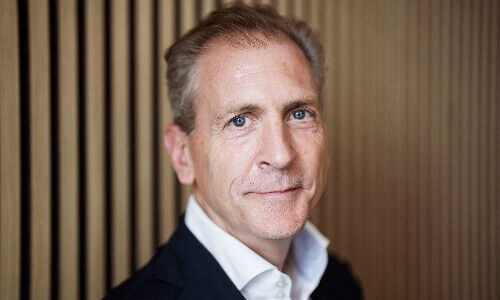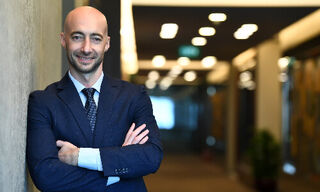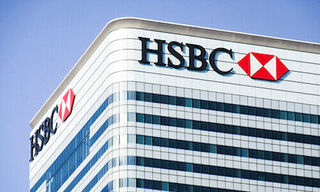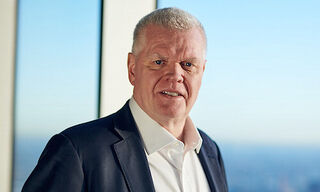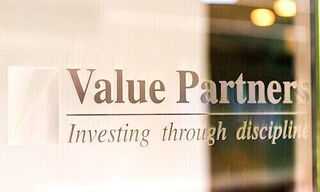The idea for the business model of independent asset manager Swisspartners was born on a beer mat thirty years ago. CEO Markus Wintsch recalls the most important steps in its development. «It would be presumptuous of me to claim that everything always ran like clockwork,» he tells finews.com in an interview.
Mr. Wintsch, Swisspartners is celebrating its 30th anniversary. How did it all begin?
In the first half of the 1990s, a trend made itself felt in the Swiss financial industry when numerous client advisors from banks established themselves as independent asset managers. With this step, they hoped to have greater entrepreneurial freedom and more time for their main goal of having direct contact with clients.
This was also the case for the three bankers Martin P. Egli, Dirk van Riemsdijk, and Rainer Moser, who knew each other either from their studies or their work at Cantrade Bank (SBG, later UBS). «The three of us were in management positions and were getting further and further away from the clientele,» Martin Egli once told me. By founding the firm, they wanted to focus on client business because, in their eyes, this suffered too much from the burden of administrative tasks at the major banks.

Dirk van Riemsdijk, Martin P. Egli und Rainer Moser (Image: Christian Meixner)
Then everything happened very quickly...
Exactly. The founders and their two assistants sketching out their business model on a beer mat shows how light-heartedly they went about their work. That was in November 1992 when the three partners acquired a shell company and set up shop at Schanzengraben in downtown Zurich, where we are still today.
«I was employee number six»
They started the actual business activity at the beginning of 1993. The founding partners had a critical volume of client money and many years of experience in serving wealthy clients.
When did you join?
In March 1995, when I became employee number six. I was 27 years old and worked in asset management at the then-Union Bank of Switzerland (now UBS). I would also have had promising career prospects there, but I was still attracted by this unique opportunity, especially since the company's founders did their part to convince me once and for all. I never regretted it, although, in the same year, I had also received a promising offer from the Zug Partners Group, which was also in its infancy at the time.
How was Swisspartners able to establish itself against the competition?
At that time, we only offered classic asset management mandates; strategies implemented with a few investment categories. Derivatives, hedge funds, private equity, and structured products weren't yet very widespread. We set out to reposition private banking as a bank-independent company for our wealthy private clients.
A characteristic feature of those days was that we served clients from numerous countries. This was possible at the time because there were far fewer regulatory restrictions and provisions than today. We operated an opportunistic business model.
«About 20 percent of our clientele is based in the US»
Thanks to our founding partner Dirk van Riemsdijk, we had a considerable share of Dutch clients and Rainer Moser was mainly responsible for German clients. Today, we maintain a healthy mix of Swiss and Western European clients. About 20 percent of our clientele is based in the US.
In 2001, you took over as head of the Partners Committee and became, so to speak, CEO of Swisspartners. What were your priorities from then on?
It was clear to me that not least due to external factors such as digitalization, and globalization, but also increasingly complex regulations we had to focus our business more clearly while opening up new business areas to be able to offer our customers a more comprehensive service covering more needs.
What did that mean in concrete terms?
We gradually started including services such as tax consulting, fiduciary services, succession consulting and planning, real estate services, and insurance solutions in our range of services. This undoubtedly gives us a competitive edge over our competitors.
Looking back, were there any developments that you regret?
Of course, that's part of being an entrepreneur. It would be presumptuous and also untrue if I were to claim that everything always ran like clockwork. For example, we didn't have enough staying power when it came to building up the Spanish market, perhaps also because we didn't invest enough in a focused way. We also slept through building up the Italian market in the wake of the tax amnesty.
In retrospect, I also regret launching a tech fund fairly at the end of the dot-com bubble, which was later closed with substantial losses. In addition, we sold our investment, which we made at the time to help start Fisch Asset Management, far too early in 2001. To this day, this company is excellently positioned and highly successful.
Your experience with the US judiciary wasn't a glorious chapter in your company's history.
On the contrary! We did everything right. When the tax dispute between the US judiciary and the Swiss banks broke out, it became clear to us very quickly that this conflict would also extend to independent asset managers looking after US clients.
«We never really fulfilled those expectations»
And because this was the case with us, we very quickly filed a voluntary disclosure with the US judiciary and were subsequently able to settle the matter with a one-off payment. We actively assisted our US clients in their tax cleanup vis-à-vis the US authorities and received a lot of recognition as a result.
In 1999, the Liechtensteinische Landesbank (LLB) took a 20 percent stake in Swisspartners and expanded this to 70 percent. Did you want to stop?
No. We and the LLB hoped the merger would lead to greater market penetration and additional sales opportunities. These expectations never really came to fruition, so we, as a partner with the help of two private investors, bought back the LLB stake of around 70 percent in 2015.
From an original staff of five, the company has now grown to 110 employees managing 5 billion Swiss francs in client assets. How do you want to align the company in the future?
We merged with two companies last March as part of our expansion of services. NRS Treuhand is one and Decimo Immobilien, domiciled in Rapperswil is the other. This allows us to broaden our range of services for clients domiciled in Switzerland.
«The list of potential account managers has never been longer or more promising»
At the same time, I also think that our industry has entered a new world as a result of stricter regulations and the withdrawal of foreign banks, as well as the takeover of Credit Suisse by UBS, which, if you position yourself clearly in business terms, offers enormous opportunities.
You'll have to explain that to us in a little more detail.
For independent asset managers who don't have a clear, manageable business model, the future will be difficult. Today, structures and critical mass are needed to drive a long-term growth strategy. The disappearance of Credit Suisse opens up opportunities, both in terms of clients and staff. The list of potential relationship managers has never been so long and promising. Such personnel growth opportunities will lead to the rejuvenation of our company.
What's your assessment of the Credit Suisse showdown in March?
I followed the events that weekend, of course. On the one hand, it is certainly a remarkable achievement what the parties involved have negotiated for the Swiss financial industry in a short period, even if this does not mean that all issues are off the table.
«Surely this demonstrates an enormously high level of confidence in our banking system»
However, I also find it worth mentioning that around five months after the historic announcement in March, the transaction has already been digested by the general public and we've virtually returned to a normal course of events. This demonstrates an enormous degree of confidence in our financial institutions and ultimately also in our banking system.
What are Swisspartners' priorities for the next 30 years?
With the latest transactions in the areas of fiduciary services and real estate, we've created the best possible conditions for providing comprehensive services to wealthy clients and their businesses.
We're in a position to advise this clientele on many wealth-specific issues far beyond traditional private banking. Today, the focus is on a holistic view of all assets and the associated requirements in tax, fiduciary, insurance, and real estate. Ideally, everything should be digital.
Markus Wintsch started his professional career in the financial industry in 1992 at the then Union Bank of Switzerland (UBS, today UBS) in asset management. In March 1995, he moved to Swisspartners, where he became Head of the Partners Committee in 2001, advancing to Group CEO. He still holds this position today.

